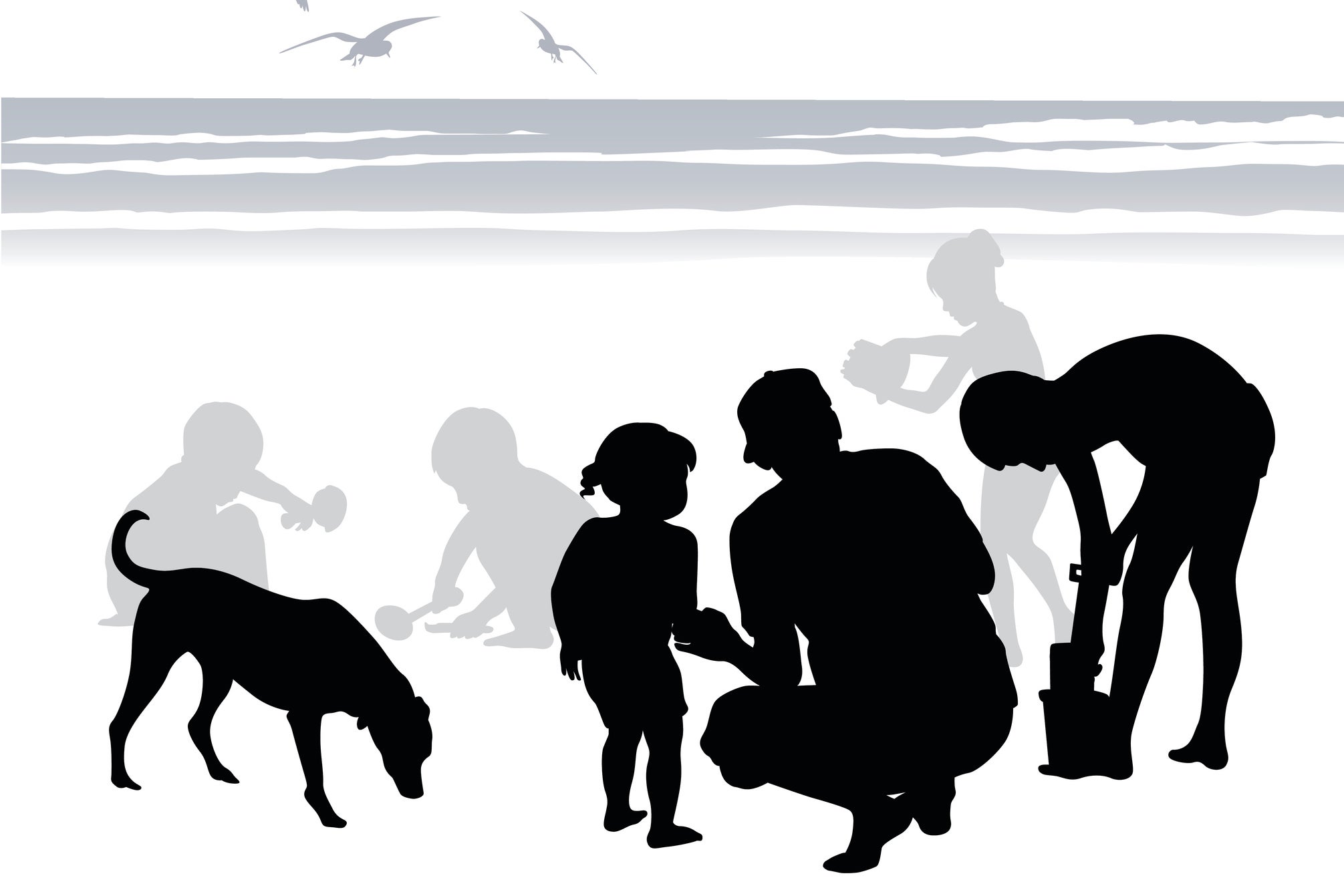Overcoming angst about siblings' age difference
Do kids who have siblings closer to their own age fare better than those who don’t? And what can parents do to help foster a lasting bond?

When my oldest turns 20, his little sister will be 11.
While the baby toddles about the living room, I sometimes overhear my son and his friends doing the calculations.
“When we’re in high school, she’ll be starting elementary,” they figure.
Right now, that seems sweet. He still enjoys a game of peek-a-boo, which makes my two-year-old giggle. When she tags along to his Boy Scout meetings, he gets a big kick out of showing off her ability to dab – a skill that he spent a lot of time teaching her.
Still, I have a bunch of existential fears about how their wide age gap will affect them in the long run. Like, what impact will it have on their relationship as they grow older? Does scientific research show that kids who have siblings closer to their own age fare better than those who don’t?
Those questions are relevant to a significant number of American families. About 20 per cent of women wait five years or more between the births of their children, according to a 2015 report from the Centres for Disease Control and Prevention. Anecdotally, the gaps tend to be even greater in blended families like mine.
The examples are everywhere. Look at our most recent first families: President Donald Trump’s oldest son is 39 and his youngest, Barron, is 11. Former President Barack Obama is nine years older than his sister, Maya Soetoro-Ng. In celebrity circles, Khloe Kardashian, 33, is more than a decade older than her sisters Kylie and Kendall Jenner, for example.
I did a little digging into those famous brothers and sisters and took some comfort in the fact that, on the surface, they seem to have one another’s backs.
The Trumps are a tight-knit clan, and the President’s penchant for promoting his family members seems to have trickled down to his children. When Barron faced an onslaught of media attention and snarky critics on social media during Trump’s inauguration, big sister Ivanka came to his defence by calling him a “baby whisperer” and tweeting a cute video of Barron playing with her infant.
Similarly, Obama’s sister has described a close bond with him despite the fact that they spent long stretches apart during their childhoods. In an emotional video released during Obama’s first campaign for president, Soetoro-Ng said her brother took her travelling after their mother died and reminded her that “the world was still large and still beautiful and that there was still much to be done”.
And on their reality TV shows, Khloe has displayed a strong bond with both of her little sisters. “I don’t want Kendall and Kylie to do this alone,” Kardashian said this spring as they all donned disguises and blended in with a Hollywood tour group for a day out. The famous sisters giggled as they assumed undercover identities and went around Los Angeles undetected.
Standing up for one another. Comforting each other. Laughing together. That’s what I want for my children, too. My two sisters and I are stairsteps, only about two years apart, and as adults, we are the best of friends. I think there’s deep value in holding your siblings close, and I’m encouraged to know that is possible no matter the age difference.
In these early years, I’ve tried to continually foster my children’s bond. My son was one of the first people to hold my daughter after she was born. His name was the first one she learned. Although we are a blended family, we don’t do step-this or -that. As the children are growing, I want to continue to create the kind of family where their relationship has a chance to flourish.
Parenting blogs are filled with helpful anecdotes and suggestions for raising age-gap kids: Eat dinner together regularly and include all the children in the family’s conversation. Plan one-on-one time with older kids so their needs don’t get lost. Find activities that cater to the interests of the entire family.
Those strategies have been pretty easy to incorporate with some forethought. When we vacationed this year, we chose to go to an amusement park that had both splash pads for the toddler and roller coasters for the tween, and everyone had a great time.
And, honestly, despite my worries, I’ve already found parenting kids in different stages of life to be pretty great. It is nice to have an extra pair of hands while I run upstairs to grab a diaper, and most of the time my 11-year-old is willing to entertain his sister so I can warm up dinner. She seems to be learning language quickly, in part because he enjoys teaching her new words. (This is mostly helpful, although sometimes he encourages her to say silly things, like “I am a chicken nugget.”)
When I dug into the scientific research regarding age-gap siblings, I was surprised to find positive data points there, too. One study argued that children born into families with much older children grow up in more favourable intellectual environments. The larger age gaps can also benefit the older child because they have more time to develop before their parents’ attentions are directed toward a new baby.
What a relief to find that one of my parenting anxieties could actually be a benefit for my kids. You think they’ll thank me for their age gap someday?
© Washington Post
Subscribe to Independent Premium to bookmark this article
Want to bookmark your favourite articles and stories to read or reference later? Start your Independent Premium subscription today.

Join our commenting forum
Join thought-provoking conversations, follow other Independent readers and see their replies